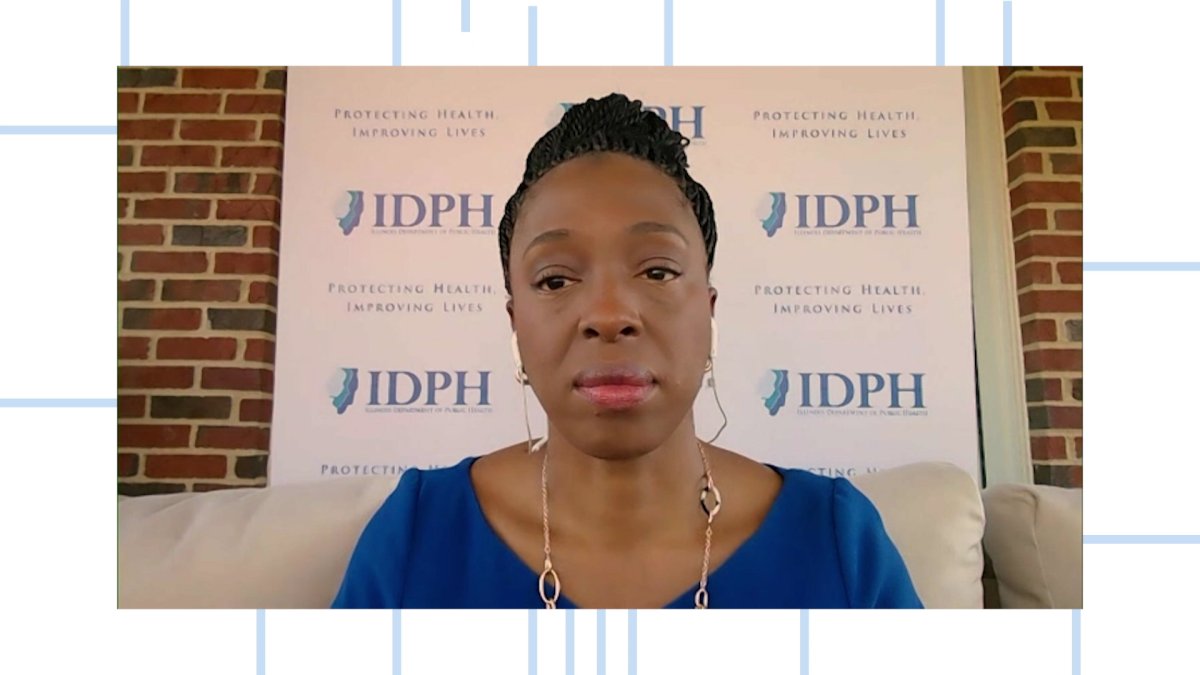
Illinois Department of Public Health Director Dr. Ngozi Ezike answers some questions on the COVID-19 vaccine progress, the case number surge in Illinois and how to have a safer Thanksgiving this year.
The people in Illinois who are contracting coronavirus the most are not the ones who are dying from it, Illinois' top health official says, detailing how the deadly virus is spreading across the state and again pleading with residents to change their behavior.
Illinois Department of Public Health Director Dr. Ngozi Ezike said Tuesday that in analyzing the data every day and over time, the largest number of coronavirus cases in the state are in the age group of 20 to 29 years old.
"We look at the numbers daily, weekly, monthly, wave one to wave two, right now we see that the largest number of cases, if you divide them up by groups, the largest number of cases are in the 20 to 29 year olds," Ezike said in an interview.
"But when you see the individuals that are dying, it's highest in the 80 and above, next highest 70 and above, next highest 60 and above, right in order down the line," she continued. "So we know that though the primary group that's getting infected is the 20-somethings, it does spread from there and get to our more vulnerable citizens in the state."
What exactly are those 20-somethings doing to see such high transmission of the coronavirus? Living, Ezike said.
"They're living, they are gathering, you know, they're working, they're dining," she said. "Everything that they're doing is an opportunity for spread."
Ezike said there are some settings that health officials know to be higher risk for transmission: settings that don't involving masking or social distancing.
Local
That includes private gatherings without masks or distancing, dining opportunities where people eat and drink without masks, she said.
"Any kind of event that predisposes to that the lack of masking and distancing has created an issue and so we really need to curtail on that," Ezike said, warning that the state is "headed in the wrong direction with the pandemic, with more and more cases, more and more hospitalizations, more and more deaths."
"The hospitals are crying out saying that they are worried that they won't have a bed for everyone that wants to come in, whether it's COVID, or a flu, or a car accident or a heart attack, and that's the situation we just can't afford to have," she continued.
Ezike again called on Illinois residents to stay at home as much as possible and gather only virtually, even for the holidays. But if people must gather, she said there are ways to do so more safely: limit guests, try to separate people from different households at different tables, tell guests ahead of time that masks are required so they are prepared, try to hold gatherings outside and more.
With regards to the health care system, Ezike said the state is trying to avoid a situation like in North Dakota, where the governor issued an order allowing staff who test positive to continue caring for COVID-19 patients.
"That's the point we're not trying to get to," she said. "I mean, I'm already getting calls from hospitals, saying that many of their staff are on quarantine, many of their staff are actively infected. And so they are sitting them down, they are at home, isolating and or quarantining. But if we got to a point where every bed in the hospital was full, and there wasn't anyone to take care of them, what choice would we have? So we can't get to that option; we have to do things now to make sure that that eventuality does not occur."